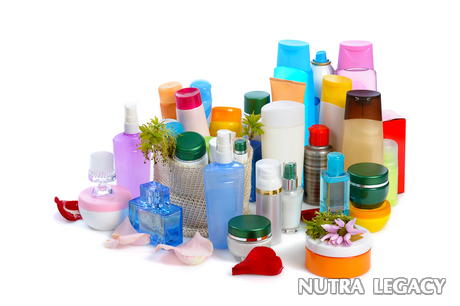De-polluting Your Personal Care Products: What Ingredients to Look For
The average consumer continues to be confused between their search for natural and healthy products and what manufacturers and marketers try to sell us under those titles. In an attempt to entice us to buy, there are often sly deceptions in the complete contents. Nothing is more to the forefront than the personal care products we use on our bodies. More and more marketing is presented as clean, clear, and natural, but actually contains many unwanted chemicals (most of which we can’t even pronounce). Since 60% of the items we place on or about our skin is absorbed directly into the body it’s important to delve through the nonsense and take charge of de-polluting your personal care products.

When examining a label – turn it to the marketing side first to view what they may be touting as ‘natural’ and then look to the back to see exactly where that natural ingredient appears on the list. Manufacturers have to list items in the order of percentage of content, so if that lavender is next to the bottom, then there is hardly any lavender in it. It might smell like lavender, but that’s usually added scent (more than likely artificial).
Here is just a short list of items to look for in your pursuit to de-pollute: DC&C dyes, quaternium 15, dioxin, butyl cellosolve as well as isobutene; sodium lauryl sulfacte and sodium laureth sulfate; sodium myreth sulfate, ammonium lauryl sulfate,; propylene glycol, DEA, MEA and TEA; talc, DMDM Hydantoin and UREA; tricolosan, propylparaben and methyparaben; fragrance (which includes fragrance oils), carmine, and phthalates. You might be surprised to find that these chemicals are found in shampoos, conditioners, body soaps and washes, cleaners, nail products, baby powders, lipsticks, blushes, glosses and eye shadows. Many of these are used in industrial processes, are known carcinogens and in some cases, used by funeral directors for embalming purposes. In other cases the chemicals are linked to depression, mental illness and can cause kidney damage.
While you might be shocked that your personal products and even baby products carry these toxins, they are completely sanctioned by the FDA, due to the lowered quantities they contain. So now that you know what to avoid, you will need to know what to look for on the store shelves. The first key is the seek anything labeled ‘cold pressed’ as well as ‘USDA Organic’. Just simply stating organic isn’t enough. There are specific regulations on what can be labeled organic and USDA approved covers all of the required areas. Cold pressed is a process that extracts the botanicals through a non-heat process, thereby leaving all of the essential ingredients. The heat processes destroy the botanicals. If you see a label that proclaims that it contains vitamin E, research to find out if the vitamin E is natural or glycerin synthetic.
What this information tells us is that are many ways and methods to allow the consumer to make assumptions, based on the claims of the manufacturers; but our assumptions without investigation can be wrong. In your effort to de-pollute, you can also contact manufacturers and make requests as well as request specific products from your retailer.
Sources: http://allnaturalbeauty.us/allnaturalinfo.htm
The information supplied in this article is not to be considered as medical advice and is for educational purposes only.
|
 18 Apr 2013 18 Apr 2013 |

After reading this I went over and looked at my shampoo. Never did that before because it say's ‘all natural' on the label. Could barely read the ingredients as well as pronounce them. I looked them up on the internet and was shocked at what this all natural product contains.April 17th, 2013 at 11:36 pm
Didn't really know that what we put on our skin is actually absorbed into the body. Makes sense, though. I have been spending extra money on things that I thought were good for me, only to find out now that they aren't and could be causing me more problems.April 16th, 2013 at 8:36 pm
My grandmother used to make her own creams and lotions. I always thought she was crazy when it was so easy to just buy something. Now I know different. It's the manufacturers that are crazy, crazy all the way to the bank.April 15th, 2013 at 1:46 pm
I bought a skin lotion that was supposed to be healthier than the rest. I broke out in a rash and when I took it to my doctor, he pointed out five things that I may be allergic to. I am ashamed at myself for not reading the label.April 14th, 2013 at 10:18 pm